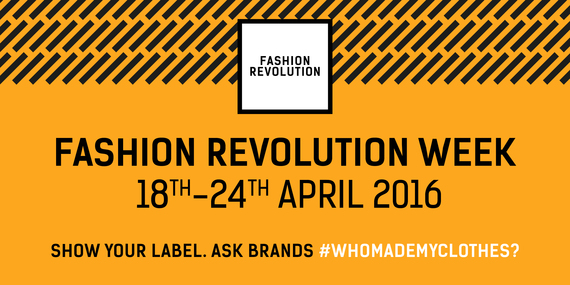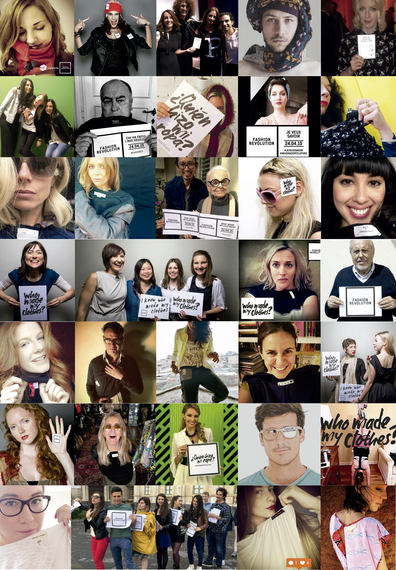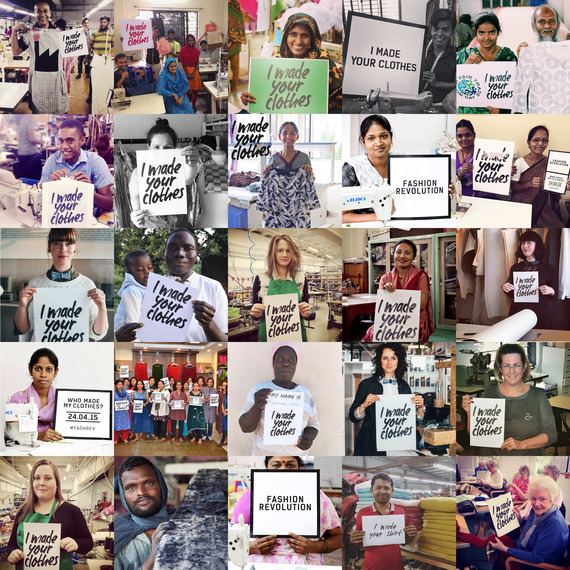
The fashion industry sometimes seems like a spoiled child. A child which has been used to having it all its own way for too many years and has been given everything it wants. It has grown up with few rules. Its creativity is celebrated; its misdemeanours brushed aside as part of the growing-up process. When eventually it starts to be disciplined, it gives the appearance of doing the right thing where it can be seen, but out of sight, in its secretive world, little changes. If misbehaviour is discovered, it says 'oops, I didn't mean to do this, sorry...'
Following the collapse of the Rana Plaza factory complex in Bangladesh on 24 April 2013, everyone thought that the fashion industry would grow up. It would have to start taking responsibility for the people and communities on which its business depends. 'Business as usual is not an option' was a common refrain following the disaster. But how much has really changed in the past three years? And how many more years will it take until we see a more transparent and more sustainable fashion industry, both in Bangladesh and worldwide?

The global fashion industry remains opaque, exploitative and environmentally damaging. It desperately needs revolutionary change, but we can't start to address its bad behaviour until we can see it. Indirect sourcing strategies prevail in Bangladesh as almost every stakeholder single-mindedly pursues the lowest possible cost. Most of the factories and workshops where subcontracting takes place are unregulated. All homeworkers carrying out piece work for these factories, working through networks of intermediaries and agents, fall outside the scope of the Accord and the Alliance.
Transparency is not easy. It involves fully understanding how and with whom your overseas supply chain works and making that information publicly available. This will be a challenging journey for the fashion industry, but it is a necessary one. At Fashion Revolution's House of Lords roundtable IOSH Chief Executive Jan Chmiel said that transparency should be seen as 'an investment, not a cost - one that saves lives, supports business and sustains communities. Whereas, a lack of transparency can do the reverse. Crucially, it can mean that firms don't know the factories that are supplying them, so they can't actively manage their risks - potentially leading to tragedy, disaster and business failure'.
To be transparent, brands and retailers need to be accountable. That's why Fashion Revolution Week will see the launch of our Transparency Index, in collaboration with Ethical Consumer. The Index covers 40 major global brands, ranking companies according to the level of transparency in their supply chain. Only 25% of companies responded to our questionnaire; it is impossible for our researchers to know what is going on behind the closed doors of the rest of them. As a result, brands and retailers who did reply have had a better chance to convey this information and may consequently receive a better score in the Index. Transparency is good for business.

At Fashion Revolution, we want to see a world where clothing brings both physical and emotional well-being to everyone it touches, from the cotton farmer through to the wearer. We are working to bring visibility to all of the hidden faces and voices of the millions of makers of our clothes, highlighting their stories, and showing where change still needs to happen.
And we are starting to see the beginnings of a new dialogue taking place; Fashion Revolution has sparked a global conversation about the social and environmental issues facing the fashion industry. We have been been particularly successful over the past three years in engaging the public in these issues and giving them tangible ways to become part of the solution. Last year we achieved 21.7 billion potential viewership from press features and our hashtag #whomademyclothes had 63 million reach on 24 April, trending gloally on Twitter. Our €2 T-Shirt, a Social Experiment video had over 7 million views, whilst over 2 million people watched the #haulternative. This year, we again have top bloggers, vloggers, celebrities and around 90 countries taking part. The previously impenetrable fashion supply chain is seeing an every brighter light shone upon it.
Fashion Revolution wants to ignite a revolution to radically change the way our clothes are sourced, produced and purchased. We need to throw open those closed doors which may be hiding corporate misdemeanours or, at the very least, corporate indifference. The fashion industry must grow up and start to take responsibility for its actions. We believe transparency is an essential first step in the growth process, and it starts with one simple question: who made my clothes?
Find out how to get involved in Fashion Revolution Week 18-24 April and find out what events are happening near you
